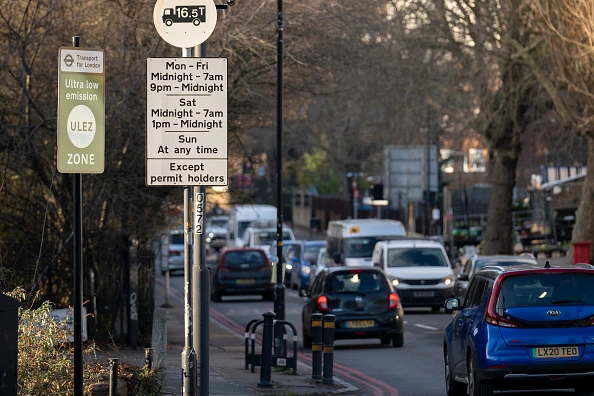
More people are making the switch to electric vehicles (EVs), and they’re now a prevalent feature on city roads across the globe. There are plenty of benefits to be had through EV ownership, including reducing transport emissions and arguably an improved all-around driving experience.
But there are some slightly more nuanced benefits to consider for EV drivers.

Cruising free in ultra low emission zones
For Londoners, from 29 August 2023, the city will be expanding its Ultra Low Emission Zone (ULEZ) in an attempt to reduce the impact transport emissions are having on the air quality in the capital. Drivers who enter the ULEZ at any time will be obliged to pay a fee of £12.50 per day.
However, certain vehicles are exempt from this charge – including all fully electric cars. It can be all too easy for drivers to inadvertently enter the congestion charge zone or ULEZ, and forget to pay the charge. But this bad habit can result in some costly penalties. In fact, the penalty charges have increased in value to £180.
Even though electric vehicle drivers don’t have to necessarily concern themselves with these zones, it’s still important to be a responsible driver and get into good, safe habits when on the road.
EV drivers also won’t need to worry about getting into some of the bad habits that those in traditional vehicles are often guilty of.
Leaving the fuel run until the morning
We’ve all been guilty of it at some point. We tell ourselves that we’ll get petrol in the morning on the way to work, but time soon runs away from us and we suddenly realise a quick stop at the forecourt will make you even later.
While EV drivers don’t have to concern themselves with last-minute trips to the petrol station, it’s important to make charging a habit, to avoid being caught short in the mornings.
The majority of EV owners will have a charger installed at home, giving them the freedom to top up the battery overnight ready for the following day. If you’re able to combine home charging with your own residential renewable energy sources, you will be helping to lower your carbon footprint as a result of your driving habits, while also mitigating the stress of worrying about refuelling.
Engine idling in EVs
Engine idling is the act of leaving your car’s engine running while stationary. The Highway Code states that if you expect to be stationary for more than a couple of minutes, you should switch the engine off and apply the parking brake. If you don’t and are caught engine idling, you could be liable to pay a financial penalty.
It’s a bad habit for drivers of traditional petrol and diesel cars to adopt since it can cause unnecessary harm to the environment and can also be detrimental to the engine. When EVs are on the road, they don’t emit any toxic emissions, meaning engine idling isn’t as much of a problem for the environment.
But it’s worth remembering that idling in an EV can use up electrical energy since the car’s system will still be active, so it’s always advisable to switch off when stationary.
[Read more: Could most drivers benefit from owning an electric car?]






